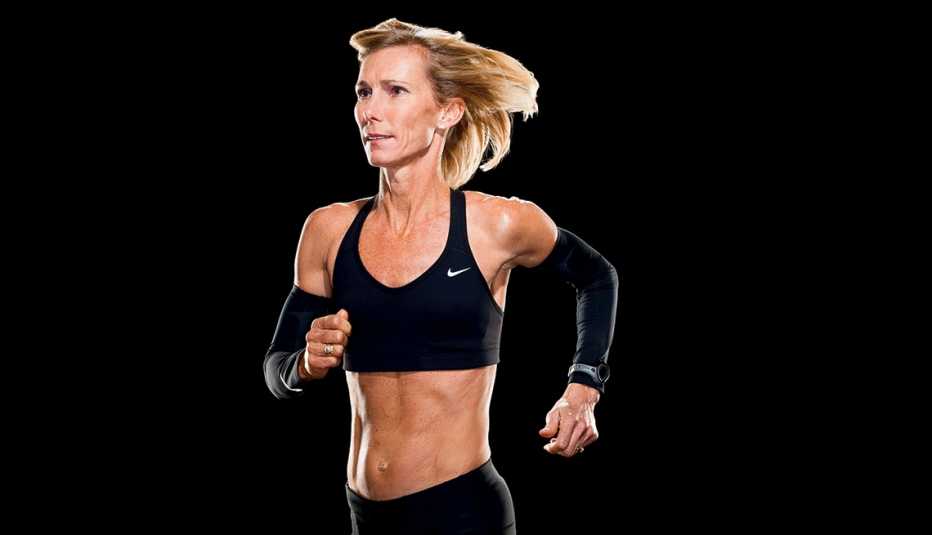AARP Hearing Center


It's 6:30 on a cold Wednesday morning in Colorado, and the Boulder Striders running group, ages 24 to 70, gathers for guidance from their coach, Colleen De Reuck. Her wispy frame is easy to spot in the dawn light: She's wearing a fluorescent orange jacket, around which she's strapped a water bottle she'll offer her athletes during the workout (in case they've forgotten one).
"It's Laura's birthday today!" she announces as the group stretches and breaks out in a chorus of "Happy Birthday." She proceeds to announce another teammate's recent race success and then offers condolences to a runner named John, who lost his father that week. One runner follows by announcing that she's headed for a race in Peru, where she'll scatter her father's ashes.
The runners then begin their workout: six repetitions of 1 kilometer each (less than a mile) at varied paces, with a short recovery in between. De Reuck, however, is working harder. She buzzes back and forth along the path below Boulder's white peaked skyline, encouraging each runner. "Drop your shoulders, Ann! Head up, Mark!"
Strider John Troeltzsch, 55, has witnessed De Reuck's ability to encourage runners at any level. "One moment she will be offering tips to folks at the back of the pack, and before you know it she has buzzed up to the fastest runners in front to offer encouragement or advice. At times I have thought she must be part hummingbird to move so fast."
Get the latest tips on protecting your health — AARP Health Newsletter
De Reuck's drive to help disciples discover the best in themselves sheds light on her enduring appetite for long-distance racing and what she expects of herself. On Feb. 10, she was coaching a similar rigorous training session. Three days later, she was toeing the line at the Olympic Marathon Trials in Los Angeles with 197 other women, most of whom were 20 years her junior.
At 51 years of age, De Reuck was the oldest competitor at the trials (and the second-oldest woman in the history of the Olympic Marathon Trials). De Reuck's qualifying time of 2 hours, 39 minutes and 22 seconds (a pace of 6:05 per mile) at the Indianapolis Monumental Marathon in November 2013 placed her faster than 50 percent of the women who qualified.

































































More on Health
Eat Healthy at These Fast-Casual Chains
Our dietitian lines up the best food choices at Chipotle, Panera and other popular restaurantsManaging Pain From Surgery
Tips for keeping pain under control in the hospital and at home
Breaking Insomnia’s Grip
Our writer finds new ways to nod off and end the no-sleep cycle